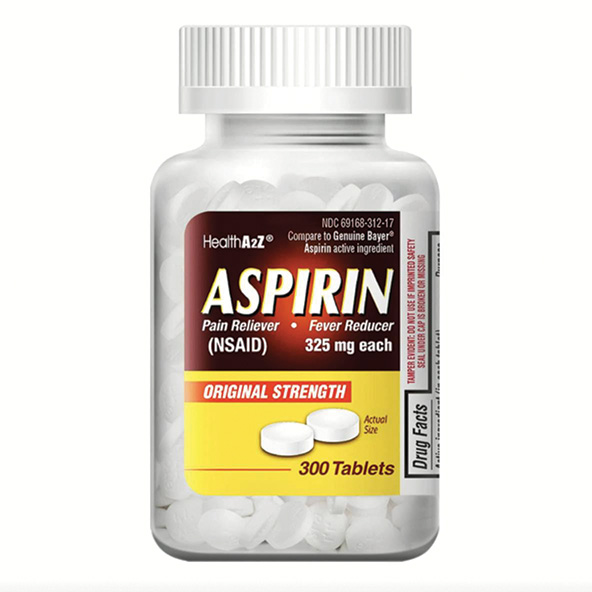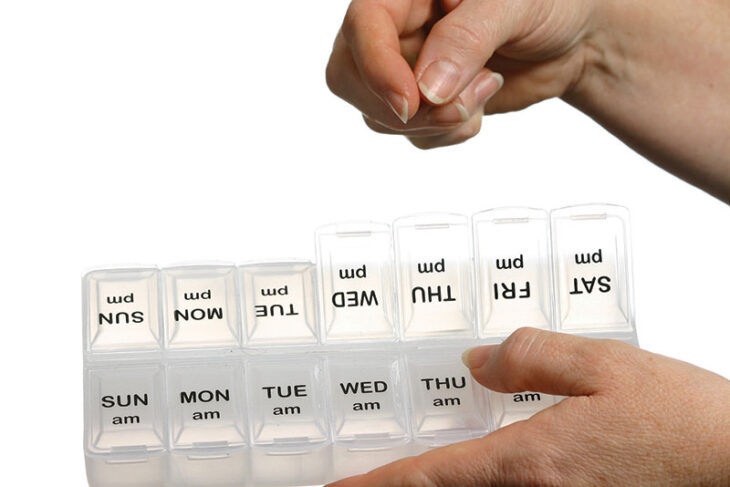Thirty years ago, the American College of Chest Physicians recommended everyone over the age of 50 take a daily aspirin. Studies had shown that aspirin reduced the risk of second heart attacks, and it was assumed that taking a daily aspirin might prevent the first attack as well. By 2007, 50 percent of Americans over age 65 were taking one daily.
Aspirin is one of the oldest drugs in use, with a history dating back to the period of Hippocrates and Galen, who found willow bark useful for pain relief and reducing inflammation. By the 18th century, ground, dried English willow tree bark found efficacy in treating malaria. The current form, acetylated salicylic acid, was invented by Felix Hoffman while working at the Bayer Company in Germany in 1897.
A single baby aspirin will inactivate all the body’s platelets, small cell fragments essential for forming blood clots. Platelets have a lifespan of 10 days, so 24 hours after taking an aspirin, a person has 10 percent new, functioning platelets. The concept was that since heart attacks are caused by blood clots in the heart’s arteries, a daily aspirin will prevent heart attacks. In addition, daily aspirin use has been found to reduce the risk of stomach and bowel cancer by about one-sixth.
 So, is it a wonder drug we all should take?
So, is it a wonder drug we all should take?
“If you’ve had a heart attack or stroke, there’s no doubt that taking a daily, low-dose aspirin is beneficial,” says Dr. Erin Michos, associate director of preventive cardiology. “But if you don’t have heart disease, should you take it just in case? The answer for most individuals is probably not.”
Aspirin has four main effects, anti-inflammation, analgesia, preventing blood clots and lowering fever. While usually these are desirable results, the body needs its normal prostaglandins for protection of the stomach mucosa, maintaining kidney function and normal clotting abilities, thus aspirin has many side effects.
Studies in 2018 in people over age 65 showed that low-dose aspirin did not prevent subsequent heart attacks or strokes. Besides being ineffective at preventing cardiovascular disease, chronic use has been associated with stomach ulcers, kidney damage, asthma and major bleeding incidents, with an increase in deaths among those who took it. It’s even been associated with altered consciousness and seizures. There’s a long list of drugs that interact with aspirin use, which can be particularly troublesome for patients needing to be on multiple medications. The list includes obvious choices such as other non-steroidal medicines (ibuprofen, ketorolac) but also some unexpected ones, such as the nasal live influenza virus vaccine.
Current guidelines from the United States Preventive Services Task Force advises initiating aspirin in persons with an estimated 10 percent or greater cardiovascular disease risk at a younger age; for example, 40-year-olds with a strong family history of heart attacks at a young age, along with other risk factors such as smoking and high blood pressure. They warned against taking aspirin for the primary prevention of heart disease unless the patient is at that elevated risk, with the understanding that other treatments, such as statins and blood pressure control, have been proven more effective. There’s very little benefit of continuing daily aspirin use after age 75.
Aspirin has its uses. It’s excellent for the temporary relief of fever and minor pains, such as headaches, arthritis, muscle soreness, menstrual cramps and toothaches. However, for most people, daily aspirin is only indicated for middle-aged patients at high risk of cardiovascular disease or certain cancers.



